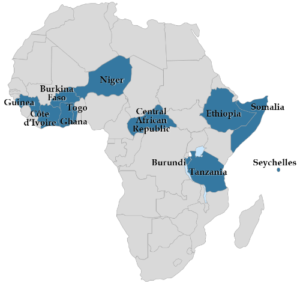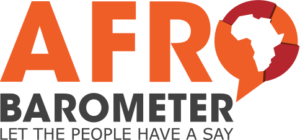
As Africa gets set to host a dozen presidential or general elections in 2020, leaders seeking to evade term limits, democratic resiliency in the face of armed conflict, and the increasingly overt efforts by external actors to shape outcomes emerge as recurring themes, according to Joseph Siegle and Candace Cook, Research Director and Research Assistant, respectively, at the Africa Center for Strategic Studies.
2020, thus, represents an important benchmark of whether African citizens (especially its increasingly active and networked youth), regional organizations, and international partners will tolerate efforts to erode democratic norms – or whether a renewed effort to uphold certain standards will gain traction, they write in a new analysis:
Underscoring the stakes at play, a majority of African elections in 2020 will be held in countries confronting or emerging from conflict, including Burkina Faso, Burundi, the Central African Republic, Côte d’Ivoire, Ethiopia, Niger, and Somalia. These countries face crises sparked from previous exclusive power structures, militant Islamist insurgencies, and the challenges of building inclusive national visions from polarized polities. Consequently, the strong link between governance and security in Africa will be on full display in 2020.
 Africa’s 2020 elections are clustered in West Africa (with 6 elections), the Horn (Ethiopia and Somalia), and the Great Lakes (Burundi and Tanzania). Ten of the 12 elections are scheduled for the latter half of the year. This suggests that 2020 will be a dynamic period of maneuvering by key actors seeking to advance not only their individual interests, but also their vision for the future of their countries – and governance norms for the continent as a whole, they add, outlining some of the key issues to watch….RTWT
Africa’s 2020 elections are clustered in West Africa (with 6 elections), the Horn (Ethiopia and Somalia), and the Great Lakes (Burundi and Tanzania). Ten of the 12 elections are scheduled for the latter half of the year. This suggests that 2020 will be a dynamic period of maneuvering by key actors seeking to advance not only their individual interests, but also their vision for the future of their countries – and governance norms for the continent as a whole, they add, outlining some of the key issues to watch….RTWT
 Africans overwhelmingly identify with a religious faith, trust their religious leaders, and express tolerance of people of other faiths. Nonetheless, in most countries a majority of Africans favor civil over religious law as the basis for government. And nearly half say government should have the power to regulate religious speech in the name of public safety, according to a new Afrobarometer analysis.
Africans overwhelmingly identify with a religious faith, trust their religious leaders, and express tolerance of people of other faiths. Nonetheless, in most countries a majority of Africans favor civil over religious law as the basis for government. And nearly half say government should have the power to regulate religious speech in the name of public safety, according to a new Afrobarometer analysis.
In its 12th Pan-Africa Profile, released today, Afrobarometer – a partner of the National Endowment for Democracy (NED) – reports that majorities in all 34 surveyed countries claim a religious affiliation and profess tolerance for those of other faiths:
- Religious leaders are more trusted and less widely seen as corrupt than any other group of public leaders, although both of these positive perceptions have weakened somewhat since the previous survey round.
- Africans are more likely to contact religious leaders (43% did so during the past year) than traditional leaders (31%), local government councillors (22%), MPs (11%), or other types of public officials.
- Almost half (47%) of Africans say their government should be able to regulate what is said in places of worship, especially if it threatens public security.
Please find the report attached here.







